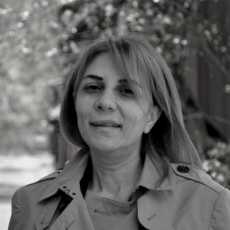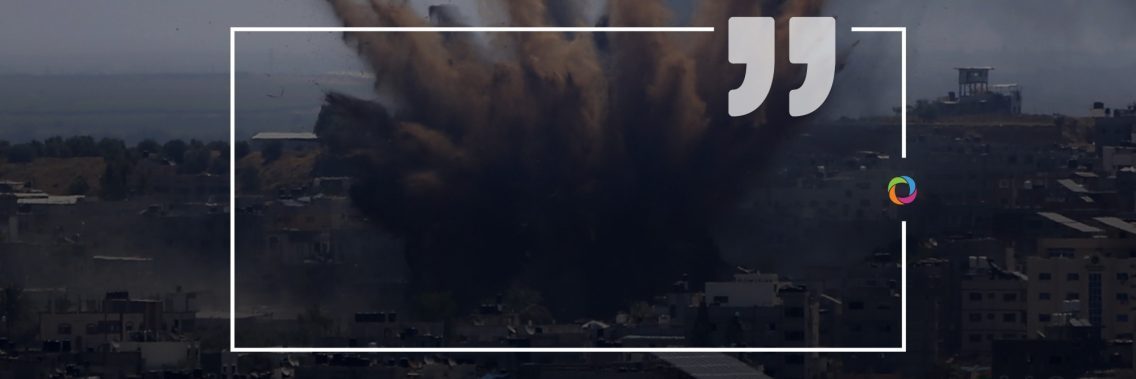The confrontations across Israel and Palestine have become one of the worst outbreaks of violence there in recent memory, causing the deaths of more than 200 people in Israel and the occupied territories. This is a reminder of how deep the gap remains between each side in finding a solution to maintain peace. However, is this conflict something that could be prevented and how does it impact the international development world? Check out some opinions below.
What are the consequences of this conflict for the international community?

“The Israel-Palestine conflict has occupied the international community’s agenda since 1948, with the establishment of multiple mechanisms to meditate for peace such as the Middle East Quartet (United States, Russia, the EU, and the UN), the ad hoc liaison committee that deals with the economic development of Gaza, the Arab quartet (Egypt, Jordan, Saudi Arabia, and the United Arab Emirates) and the Munich group (Germany, France, Egypt, and Jordan). This deployment of coalitions demonstrates the failure of diplomatic efforts in conflict resolution. As was the case in the recent outbreak of the Azerbaijan-Armenia conflict for the Nagorno-Karabakh region, where only Russia could broker an agreement between the parties, it is necessary for pressure from a greater power that is directly concerned to oblige the parties to curb the factors that cause hostilities to break out and, eventually, to achieve a peace agreement between the Israelites and the people of Palestine. This responsibility corresponds to the USA as Israel’s primary sponsor. Since 1967, the Israeli-Palestinian conflict has been at stalemate with hostilities breaking out from time to time, reminding the international community that the status quo is not sustainable. Mediation efforts have been on hold since the 1993–1995 Oslo Accords that ended with a two-state solution proposed. Although the stakeholders are waiting for the parties to show a willingness to negotiate, it is necessary for states and multilateral organizations to be more proactive to avoid an unfortunate outcome with a humanitarian and security tragedy that affects the globalized world.”

“The conflict between Israel and Palestine is not new and yet every wave of violence confirms radical points of view and serves to polarize the world. It also undermines faith in solutions and creates a mindset of cynicism and pessimism. The repercussions of the conflict transcend the boundaries of the Middle East and are being utilized by extremist groups to justify terrorism and as a recruiting tool. The scenes of Syrian refugees fleeing the region remain recent and vivid. The international community has a vested interest in a stable and prosperous the Middle East. The world is becoming increasingly intertwined where cultural and geographical exclusivity are nothing but distant memories.”

“The genocide and ethnic cleansing of Palestinians is not to be dismissed or over-simplified as a ‘conflict’. The growth of Israeli settlements on Palestinian land continues unabated, despite being a violation of international law. Israel is guilty of imposing policies and practices against Palestine which constitute nothing less than apartheid and ethnic cleansing. It is a grave miscarriage of justice in which the international community is complicit as there is insufficient outrage against, and efforts to denounce, the antimuslim ideology that Palestine has adopted. Allies have aligned themselves on either sides of the fence which could result in another World War or, at the very least, war crimes which may never be publicized to the international community. The realisation that all self-proclaimed democracies in the developed world, such as Canada, USA, South Africa, Australia, and Israel are built on atrocities, is a testament to the extent of injustice which still exists and the benefits which have been and continue to be enjoyed because of it.”
What should the international community do to both stop and prevent future violence in the region?

“The Middle East is one of the most agitated regions in the world, threatening international security. Preventing outbreaks of violence requires a consensus of the great powers, conceding their national interests in favour of peace. Once the leading promoters of different factions prioritize the welfare of the population, it will be possible to take structural measures according to the needs of each nation and strengthen the rule of law and economic development. To avoid outbreaks of violence in the Israeli-Palestinian conflict, the international community, taking advantage of the “new normalizers” (UAE, Bahrain, Sudan, and Morocco), is required to press for stopping the events that provoke the revival of hostilities. Following the Carnegie Endowment for International Peace and the US/Middle East Project, the Biden administration has an excellent approach to prioritizing equal rights and equal security for both Palestinians and Israelis.”

“The international community has been trying to strike a balance between managing the conflict and solving it. Managing the conflict requires creating conditions on the ground that makes resorting to violence a less attractive option while solving the conflict requires addressing sensitive issues that could trigger strong reactions in the short term. Within this duality of managing and/or solving the conflict, the international community leans to one side over the other based on analyzing regional dynamics. The intermittent nature of violence in this context, which falls short of a full-blown war, allows for transitional and partial solutions that bring the parties closer to a final agreement. For example, solving water issues between Israel and Palestine is doable and can be decoupled from final status agreements. As such, the international community could begin by focusing on low-hanging fruits while continuing to reassess. Solving these issues cements stability and is helpful for building the necessary trust in order to reach a final solution.”

“In the final analysis, it is the responsibility of the international community to see the Israel-Palestine conflict for what is really is, genocide, apartheid, ethnic cleansing, social displacement, and cultural erasure, rather than equivocating about the injustice that is being meted out to Palestinians who are being forcibly removed from their homes, subjected to fines to compel self-demolition and killed in terrorist attacks. It is the responsibility of the United Nations to enforce sanctions as necessitated by the International Convention on the Suppression and Punishment of the Crime of Apartheid (1976) articles (IV), (V) & (VI). We must, therefore, demand the immediate removal of illegal Israeli settlements, return the land to the indigenous people (Palestinians) and enforce immediate reparations for thousands of lives lost and communities destroyed.”

“The international community needs to tackle root causes like Palestinian dispossession and human right abuses. There is a fundamental asymmetry of power between Israel and Palestine. The role of the international community is to address this imbalance so Israelis and Palestinians could negotiate on level ground. That institutions inside Israel and beyond are now openly calling conditions in Israel-Palestine apartheid is a positive development. If the international community takes this legal charge seriously, it will create momentum that will help all parties move closer to a solution.”
Check out more than 70 job opportunities in the conflict sector here.

